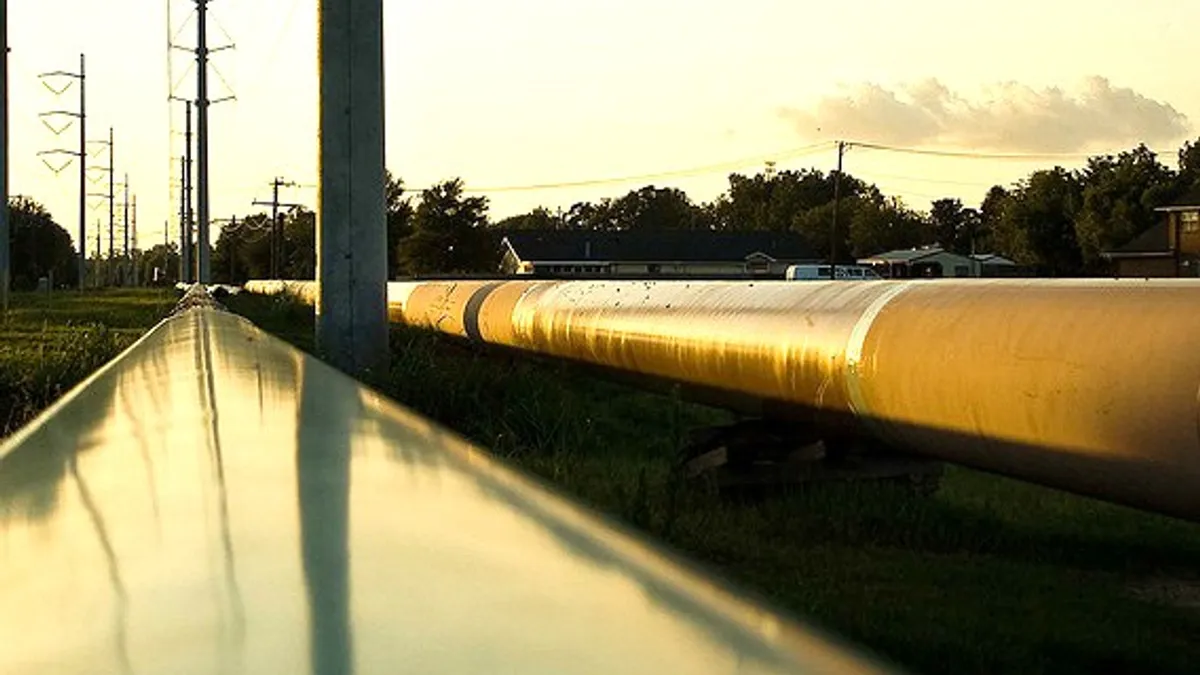Dive Brief:
- Federal regulators last week approved the NEXUS Gas Transmission project, a 250-mile gas pipeline that will transport Appalachian shale gas from receipt points in eastern Ohio to existing pipeline system interconnects in southeastern Michigan.
- The order is among the first issued by the Federal Energy Regulatory Commission's new quorum, and signals the commission is ramping up after months with just one or two commissioners...
- The project is a collaboration between Enbridge (who bought Spectra Energy) and DTE Energy, and will transport 1.5 billion cubic feet per day of natural gas.
Dive Insight:
After months without a quorum, FERC's new leadership has begun issuing orders — to the disappointment of environmental groups opposed to pipeline projects. Supporters of the NEXUS line say it is needed to make up for the decline in gas supplies from western Canada.
The project's developers say they have secured "significant market interest in new natural gas supplies in Ohio, Michigan, Chicago and Ontario to provide increased energy diversity, security and reliability across these regions." The pipeline will transport Appalachian shale gas supplies to consumers in northern Ohio; southeastern Michigan; the Chicago Hub in Illinois; and the Dawn Hub in Ontario, Canada
The project will cost an estimated $2 billion, and ship roughly 1.5 billion cubic feet of gas per day. Opponents say the only way to block the pipeline now is at the U.S. Environmental Protection Agency (EPA), which could be a long shot given the Trump Administration's vow to speed up energy infrastructure approvals.
FERC has been unable to approve pipeline projects for months, as the commission lacked the three members needed for a quorum. But Commissioners Neil Chatterjee and Robert Powelson were sworn in this month, and Chatterjee named chairman until FERC nominee Kevin McIntyre is confirmed. The two join former Chairman Cheryl LaFleur, who led the short-handed commission for the better part of this year.
In their order, the commissioners determined that development of the NEXUS pipelines "if constructed and operated as the final [environmental impact statement] describes, are environmentally acceptable actions."
The commissioners added that they "encourage cooperation" between interstate pipelines and local authorities, but then added, "this does not mean that state and local agencies, through application of state or local laws,
may prohibit or unreasonably delay the construction or operation of facilities approved by this Commission."















